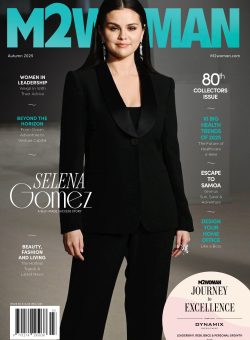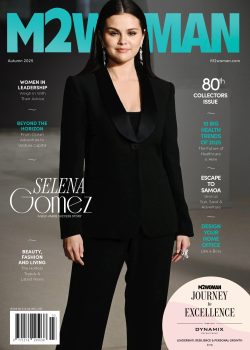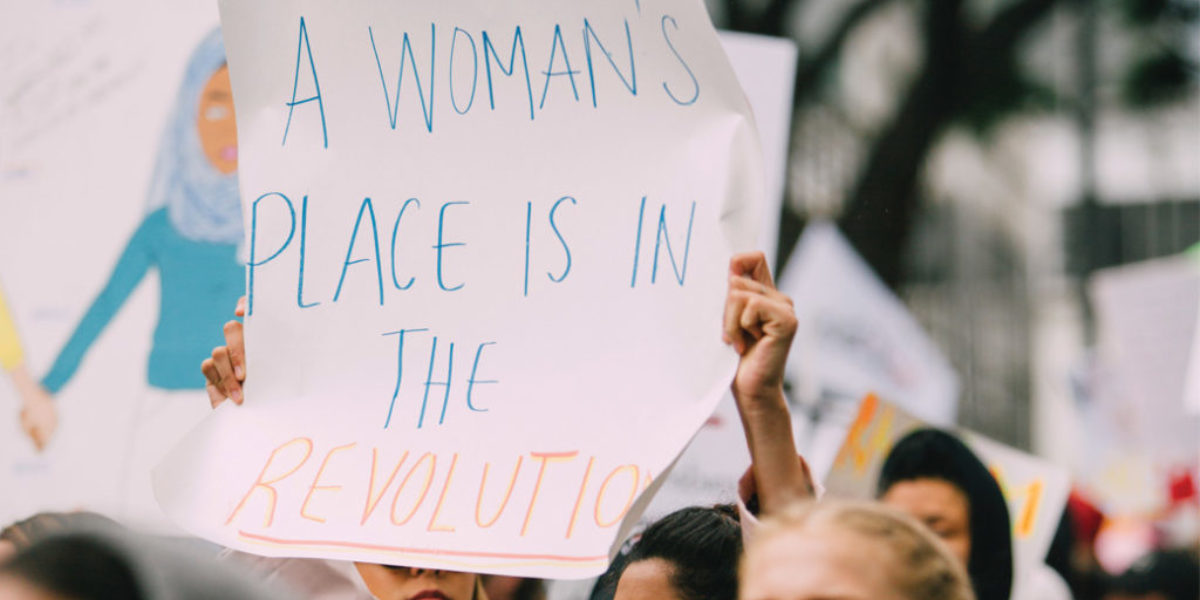Wonder Women
On March 8th, 2018, International Women’s Day, women were again celebrated for their tenacity and resistance in the face of past and present challenges. In honour, we are celebrating 13 women who are working to create a better and safer life and planet for current and future generations.
Eleanor Roosevelt was an influential and respected activist for human rights and women’s issues. She fought for the minimum wage, supported the abolition of child labour and reshaped what was accepted of a wife as one of few married women to have a career. Rosa Parks garnered the titles of ‘the first lady of civil rights’ and ‘the mother of the freedom movement’ from the United States Congress through acts of defiance toward segregation. She spurred boycotts and actions that ultimately changed segregation in the United States. Jane Goodall fights for those who cannot fight for themselves and is a messenger of peace campaigning for nonhuman rights and conservation. She has an intense concern with animal-human conservation and preserving our planet’s biodiversity.
The list goes on of women who fought and fight to amend injustices, to promote an equal world for all individuals and encourage progress to protect our planet.
These 13 present-day women are also making much needed changes to the modern world and global issues we, as a society, are facing. The majority of these problems are recognised by the United Nations as issues that transcend national boundaries and affect the quality of people’s lives around the world. This is why we need individuals, like these women, who are crafting a better future both on a global and local scale.
Global Warming:
Plastic-Free World
Brianne West
Founder of Ethique
“The planet is not ours to use and abuse at will, putting all others who depend on it at risk.”
The United Nations predicted that by 2050 there will be more plastic in the ocean than fish. This is something that affects not only our lives but every living creature on earth. As a society we are becoming more dedicated to reducing our plastic usage; supermarkets are phasing out plastic bags and restaurants and bars are getting rid of straws. But our bathroom cabinets still house unnecessary plastic. It was this knowledge, and a passion for the environment, that encouraged West to create Ethique: “it seemed so obvious to remove water [from products] and therefore the need for plastic bottles.” The brand’s concentrated beauty bars have to date saved more than 400,000 plastic bottles entering the environment, and West believes 2018 is the year they will hit the 1 million mark. In 2017, Ethique became the most environmentally responsible company in New Zealand, which comes down to West’s devotion to the environment. “The planet is not ours to use and abuse at will, putting all others who depend on it at risk. At its very core, it’s pure stupidity not to be environmentally minded; we depend on the environment and natural resources just as much as any other living creature, so we are only making our own lives harder if we choose to continue the way we are. Whilst there are many significant environmental challenges facing us, as the saying goes, necessity is the mother of invention and I think we can solve them, but we need to start now.”
The reduction of plastic is not something that can be done single-handedly, and West hopes to inspire both businesses and consumers to think about the products they buy or make. “The only way to tackle these challenges is to work together. Sometimes things seem very dark, with more and more problems emerging every day. The only way to not lose people in apathy is to bring everyone along for the ride. Small things can make a difference, every purchasing decision counts.”
Ethical Fashion
Jyoti Morningstar
Founder of WE-AR
While it is a well-respected and adored industry, fashion is the second-largest polluter in the world, second only to the oil industry. The impact fashion has on the environment inspired Morningstar to create WE-AR as a way to test, and hopefully prove, a theory she had that business could be used as a tool for activism. “It has kind of snowballed organically from there, as this struck a chord with so many, and we attracted more and more passionate people. Our aim is to lead the way towards a new normal in business, where people, community and planet are treated with respect in all ways.” The brand embraces environmental consideration throughout the whole manufacture and retail process, from the flooring used in its stores, to the worm farms in-store for staff organic waste. WE-AR, which comes from a yogic seed mantra ‘So Ham’ which translates to ‘I am’ or ‘we are’, meaning all is one, understands that every small thing we do impacts the whole. “We really can’t ignore the urgency of this any more, can we? Sure our planet will survive with or without us, but I think we would all rather it be with us. So let’s use everything we have to keep it habitable. We need this earth, its clean water and air – it’s a pretty basic requirement – we need our natural resources! We are all in this together, and we all know by now that if we keep going the way we were, we’ll be closer to a crisis that we may not be able to avoid. So, if there is any time to use your business, your dollar, your voice or your life wisely, to vote for or create change, now is the time!”
Food Waste Reduction
Deborah Manning
Founder & CEO of KiwiHarvest
“The sheer volume of food destined for a landfill, that is unable to be sold but still perfectly good to eat, is staggering.”
Every day millions of people face hunger and malnutrition, while it is estimated between 30 and 40 percent of the food produced worldwide goes to landfill. In New Zealand alone, industry wastes approximately 100,000 tonnes of food, and it is estimated more than 1 million people face food insecurity each year.
Manning founded KiwiHarvest to be the link that connects surplus food with those in need. “Food doesn’t just fill an empty stomach, it also provides nutrition, care and a sense of worth… The sheer volume of food destined for a landfill, that is unable to be sold but still perfectly good to eat, is staggering.” KiwiHarvest is a national food rescue organisation that sources and redirects healthy surplus food that is destined for landfill so it can be eaten by people in need. They have three main aims: to rescue good, surplus food that can be given to people to eat; to educate businesses and consumers about food waste; and to engage individuals to be part of the solution to end food waste and food insecurity in New Zealand.
“Food waste and food insecurity are both global and local problems. As Kiwis and world citizens, we all need to take responsibility for our environment and the health and wellbeing of our community members. If we all work together we can effect change – we can make a difference. Many organisations, like KiwiHarvest, [are] making small differences [that will] make a big difference worldwide.”
Human Rights:
Nuclear Free
Lucy Stewart
Coordinator for the Disarmament and Security Centre
“Nuclear weapons are the most inhumane and destructive weapons known to humankind and they are a significant threat to our planet.”
The financial and human resources that are poured into nuclear weapons globally each year is eye-opening, with US$100 billion spent by the nuclear weapon states each year to modernise and maintain their nuclear weapon arsenals.
“At a time when our planet is facing a number of critical challenges, such as climate change and biodiversity loss, and the global community is struggling to meet the financial requirements needed to adequately tackle these challenges, it seems nonsensical to me (and to a lot of others) that such huge resources are spent in an industry that is only designed to destroy,” Stewart says. Having been working in disarmament education to raise awareness among young people for the past three years, and having attended the United Nations General Assembly-mandated negotiations for the Treaty on the Prohibition of Nuclear Weapons, Stewart hopes she can make a change to nuclear weapons in her lifetime. “Today, in 2018, the risk is as high as it has ever been, but the difference from the Cold War years is that public awareness of this threat is at an all-time low. A key difference between conventional weapons and nuclear weapons is, firstly, not only the sheer power of nuclear weapons to incinerate cities and kill hundreds of thousands of innocent people in an instant, but also the devastation they leave behind.” While Stewart admits it can feel like a “mythical scenario” for New Zealanders, she has heard first-hand the tales of victims of nuclear weapons, from those in Japan to indigenous people in South Australia (where Britain tested nuclear weapons in the 1950s), to people from the Pacific. “We only have one planet and we are only caretakers of the planet for a short time. We need to amplify these voices so that the nuclear weapon states cannot drown our voices out anymore. Nuclear abolition is within our grasp, let’s make it a reality.”
Refugee Wellbeing
Dr Ann Hood
CEO of Refugees as Survivors New Zealand
“Refugees may not have chosen to make New Zealand home, but we all have a part to play in helping them feel at home.”
Every year, New Zealand welcomes 750 refugees, a number due to increase to 1000 in July this year as part of our agreement with the United Nations High Commissioner for Refugees. For these refugees, entering a new county and a new life is not easy, which is why in 1995, in response to a growing need for mental health services catered to refugees resettling in New Zealand, Refugee as Survivors New Zealand was set up as a non-denominational, politically neutral, not-for-profit organisation governed by a board of trustees. “Refugees are ordinary people who have been struck by extraordinary circumstances. They have had their lives torn apart because of factors beyond their control,” Dr Hood says, “RASNZ’s role is to help people work through the trauma and hardship they’ve experienced, in a culturally sensitive way, so they can make the most of their new lives in this country.” Every day people are forced to flee their countries, but Dr Hood says awareness of refugee issues has “certainly increased since the crisis in Syria hit the news in 2015. I think New Zealanders seemed to identify with the people they were seeing on their television screens and began to think about how they might cope if faced with a similar situation.”
It is a topical conversation, from the mainstream news to social media where people are sharing their opinions about refugees and the quotas, and Dr Hood reminds us that helping refugees can make a significant impact on many lives: “As an ordinary New Zealander, you or I might not have the ability to stop wars or protect people from natural disasters, but we can support people who are impacted by such events to rebuild their lives in our country. Refugees may not have chosen to make New Zealand home, but we all have a part to play in helping them feel at home.”
Data Democracy
Lillian Grace
CEO/Founder and Trustee of Figure.NZ
With the ability to access a vast array of information in a digital age, there is an increased importance of sharing data [in a way] that is fair and not corrupt. Figure.NZ takes an independent position in sharing information to create a data democracy, sharing information not just from the public sector but the private sector and academia. “Figures are a language that hold a lot of our stories, and I believe everyone should be able to understand and use those stories, not just experts. Data that is too hard to find and use leads to severe inequality of information, and restricts the kinds of insights individuals and communities can have to underpin their actions – whether big or small.” Grace says.
“We surface all the data we can, not just what we assume to be important, and we also help people learn to use it so that we are all armed with the same information when we discuss issues.” Figure.NZ wants to enable everyone to make sense of the figures shared on the website in order to help everyone move forward and create necessary change together. “There are now more information and connections than ever before, and it simply isn’t possible for a single person, group or country to have a deep enough understanding of everything. To get our best future, it’s critical that we listen to each other properly and learn how to truly partner, co-solve and create.”
Safeguarding Children
Willow Duffy
General Manager of Safeguarding Children Initiative
“[We want] children and young people to live free from abuse and neglect by creating a culture within New Zealand where protecting children is everyone’s business and every child matters.”
New Zealand has one of the highest rates of family violence in the developed world. Whether this is abuse or neglect, the numbers are not good enough when it comes to keeping children safe. Safeguarding Children Initiative was set up to educate, empower and support those around children and young children about abuse and neglect and how every New Zealander can help them. “[We want] children and young people to live free from abuse and neglect by creating a culture within New Zealand where protecting children is everyone’s business and every child matters,” Duffy says. “We realised there was a desperate need and desire for education, awareness raising, support and response systems for those working with and supporting children and their families.”
The initiative, which receives no government funding, can be accessed by anyone online. This is because the initiative’s ethos is that the only way to make a difference to the lives of children in New Zealand is to all work together: “we have found when people feel supported and part of a group that has the same beliefs, change can be created. We use the line ‘together we can make a difference’, and I believe that is the only way.” Reducing the statistics around abuse and neglect is hugely important to Duffy, who reminds us how the impact of abuse and neglect on children can be long-term and devastating not only to their future health, wellbeing and potential but also to that of future generations: “neuroscience and longitudinal research such as The Dunedin and ACE studies clearly demonstrate this. We can’t ignore it any longer.”
Second Chance
Annah Stretton
Founder and CEO of RAW
“Success, rather than being measured in dollar terms, needs to be measured in the contribution we make to others.”
Sometimes a second chance and a helping hand are all people need to make a difference in their lives. This is something Stretton offers with Reclaim Another Woman (RAW), a service offered to recidivist women who want to create a better life. It came about when Stretton had the opportunity to connect and support the Waikato Women’s Refuge, which gave her inspiration to set up RAW: “I started to look for areas of change so that women could have a choice where there had been previously none… A woman born to functional parents will be introduced to values, disciplines and expectations; she will be required to go to school and taught the life skills that come with family life. In most cases, the women we work with have never experienced this. We set out to remove the stain of incarceration, improve a woman’s self-worth, reconnect her with her children and interrupt the pattern of reoffending.” An important part of RAW’s ethos is to encourage mainstream New Zealand to think differently about individuals who have offended, in order to create change to these women’s lives and break the cycle. A significant way in which she believes we can do this is to close the inequality gap: “most New Zealanders don’t care to try to understand the extent of the problem and therefore it makes it incredibly difficult to bridge the inequality gap that in turn created cost and unrest in this country.” While it is a problem that may not directly affect everyone in our society, Stretton reminds us about the impact we can have on others’ lives: “Success, rather than being measured in dollar terms, needs to be measured in the contribution we make to others.”
Social Awareness
Johanna & Brittany Cosgrove
Founders of Nope Sisters
“As young women, in a world where we feel helpless to have a direct voice addressing the problems and issues of today, we need to make small changes every day.”
What started as a happy accident is now a social enterprise that is making a significant impact on the lives of women all over New Zealand. Nope Sisters has created T-shirts that celebrate and empower breast cancer survivors with their MastectoTee; they have encouraged women to say no to sexual abuse and youth suicide with their NOPE T-shirt; and are also reminding people of the startling number of women whose lives are affected by period poverty.
“As young women in a world where we feel helpless to have a direct voice addressing the problems and issues of today, we need to make small changes every day.” This is what the sisters have done, all by embracing the power of fashion. “We realised the power of wearing messages on T-shirts, and Brit used her design creativity to match the social causes we both felt strongly connected to, with charities we knew could make a positive difference. Every tee sold shares profits with a related charity organisation doing good work in our community,” the sisters say.
With fashion being used more and more to embolden change, from wearing black at the Golden Globes, and the Grammy’s white roses, the sisters are excited about the conversation their range can start: “we know that making a T-shirt isn’t going to change the world, but if it empowers even one person to open up and speak out about any of the range of issues we address, then we feel it can make a positive change. Our tees bring important issues to light that we feel have been hidden or taboo, and people feel reluctant to talk about.”
Health:
Mental Health
Taimi Allan
CEO of Changing Minds
“The resilience and tenacity that recovery brings are greater than any other skill on a job application form.”
Mental health is a prominent topic in all countries, and in New Zealand, nearly half of New Zealanders will go through mental health or addiction challenges in their lifetime. There are many services available to help those going through tough times, each with their own, unique approach. Changing Minds started its life around 18 years ago as The Auckland Regional Consumer Network, which was a small group of people who had all used mental health services and wanted to create a sector that valued the positive contribution people with lived experience of recovery from mental health and/or addiction problems of their own could bring. The result was a space without judgement. Changing Minds now works with the mental health system to change underlying attitudes and behaviours that prevent change. Allan says they want to build a mental health system that empowers the people using it and their families, and they believe the first step is to treat the advice and wisdom those who have experienced it first-hand bring as of equal value to other ‘experts’.
“Changing Minds is open and proud to have survived and thrived through mental health and addiction challenges, and want the rest of the world to hurry up and catch up in understanding that people with these experiences are incredibly valuable to society,” Allan says. The way in which mental health is understood and accepted in society is constantly changing, and Allan and Changing Minds are working tirelessly to change the stigma around mental health and addiction. “The resilience and tenacity that recovery brings are greater than any other skill on a job application form, and the fear and misunderstanding that results in discrimination means that people hide their history once they recover and people continue to mistakenly believe that people don’t get better.”
Plant Medicine
Sandra Clair
Founder of Artemis
For centuries, cultures all around the world have embraced the power of plants for healing, and now, in a day and age where there is a growing resistance to antibiotics, individuals are hoping to raise awareness of plant medicine. Clair, who originates from Switzerland, has a wealth of knowledge in this area, coming from a country where plant medicine accounts for over 60 percent of the prescriptions written by doctors and where access to plant medicine is part of their constitutional right. “Our mission at Artemis is to unlock the power of plant medicine and give New Zealanders the ability to take their health into their own hands… I’ve lived first-hand with the profound benefits of plant medicine, and I’m eager for more people to understand just how much they can help and add to your quality of life,” Clair says. She admits that Artemis originated almost accidentally, when she noticed there was a real lack of quality plant medicines available to treat her patients. So she began formulating her own range. Interestingly, though not surprisingly, Clair has noticed a move in recent years to a more natural lifestyle and says people are more aware of what they are putting into their bodies and using in their homes. She believes this has a direct impact on plant medicine: “people are certainly more open to trying traditional plant medicine, as they are looking for alternatives to chemical drugs… There is a renaissance happening in New Zealand where, according to surveys, up to 50 percent of the adult population and 70 percent of children use plant medicine for their healthcare. We are definitely catching up with the rest of the world.”
Breast Cancer Support
Jess Weller
Founder of WELLer Network
“Through my own experience of breast cancer as a young person, I felt it was important to share my story in order to help those much like me understand that cancer can happen to anyone at any time.”
Every day, eight women are diagnosed with breast cancer and their lives are significantly affected. Some of the keys to reducing the fatality of breast cancer are education, awareness and early diagnosis. The WELLer Network was originally created to educate young New Zealanders about the prevention and awareness of cancer. “Through my own experience of breast cancer as a young person, I felt it was important to share my story in order to help those much like me understand that cancer can happen to anyone at any time,” Weller says. While it was not created to be a support network, Weller says they often have women connect and contact us who have had their own diagnosis and they do offer individual support, advice or information. There are many reasons why Weller set this up, but it predominantly comes down to her personal journey with breast cancer: “ I have lived this disease and survived it. I am lucky to be alive. I feel it is important that I give back and share the knowledge and resources I have collected over the last five years.”
The biggest aim for Weller and the WELLer Network is to help people live their best lives and work together to make this happen: “We can’t do it all on our own, and to make a difference working collaboratively is the way of the future.”




